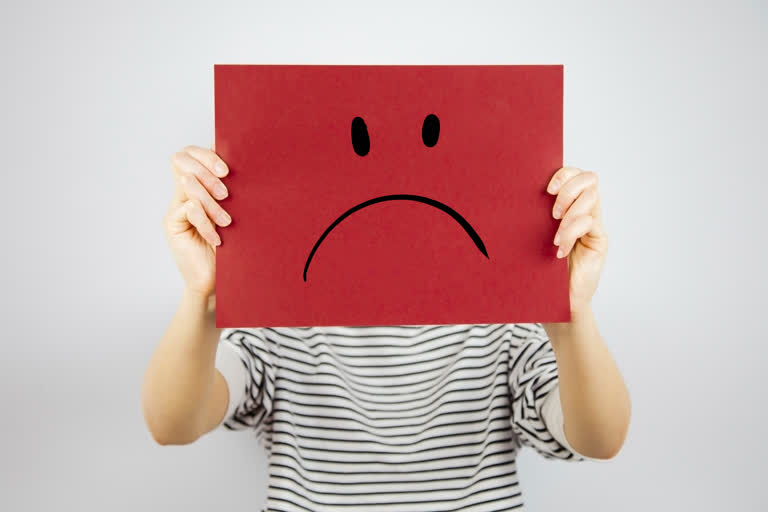Since the beginning of the COVID-19 Pandemic and social distancing efforts, people have been reporting increasing pressure on their mental health. Whether it’s because of their lost job, or medical bills, the continuous onslaught of worry is leading to major job losses. Thus, in relation to these mental health issues, we spoke to Dr. Aditya Tiwari.
As a Homeopath trained in Psychiatry and working extensively in the area of mental health, what do you feel are the common issues faced by people during this period?
- This is a very unusual situation for all of us. We were never prepared for anything like this before. People, in general, have been very overwhelmed by the impact of it. Lives and livelihoods are completely disrupted. Almost everybody, those who have not been infected by the COVID-19 virus or whose loved ones are not infected, is affected by the fear of it and the inconveniences of the lockdown implemented to control the situation. In any way, mentally, everyone is affected.
- There is an un-ending uncertainty about when this will get over and how lives and livelihoods will move from here on.
- We are not used to remaining inside the house all the time. Those going out for work are restricted, that frustrates them and those who manage the house, are as a consequence overworked. This is across all the socio-economic strata. Only the elite who can afford and manage to have their house help living in with them, are able to remain in comfort.
- Many are struggling with managing the basics of shelter and livelihood. It is not difficult to understand the strife one would experience in this situation. But for them, addressing the mental health needs would be a luxury. They have to deal with the basics first.
Are people vocal about the emotions experienced by them during this time
Not everyone is able to identify and acknowledge their feeling state. Irritability is high and people are losing temper easily. Not many are able to pinpoint their feelings. People who have been sensitive and self-observant are able to understand and voice out their feelings, but many others are not able to or maybe not aware enough to spell them out.
In your observation, what are the common emotions experienced by people during the lockdown
- Feelings of being overwhelmed,
- Irritability
- Anxiety, worry, and panic
- Anxiety mainly about the health of self and loved ones
- Panic due to the rounds of confusing, negative and scary news around
- Worry about managing in the face of uncertain times ahead mainly for livelihood.
What according to you what are the conditions precipitating the mental health issues
- Media overdose of the sad situation, confusing information, and no significant reassurance about how and when this will get over.
- Uncertainty is the most distressing factor.
- Uncertainty about control of illness
- Uncertainty about the duration of the lockdown
- Uncertainty about livelihood after the lockdown
- Because of close living in small houses, especially in the cities, various inter-personal conflicts have resurfaced. These issues were dormant as they were not given time and attention. Now since family members are spending a lot of time together in the house, these conflicts resurface.
Does family structure help?
- It does if it is a supportive family. Every individual gets reassured and the family bond helps in building hope.
- Those with conflicts are facing them to resurface. Such people are waiting to get out of the house.
Any particular type of issues in people staying away from home / stuck in lockdown.
- Homesickness, worry about their loved ones, etc. are the commonest ones. This affects the mood, creates anxiety, and commonly results in sleep and eating problems, mood disturbances, not able to focus on tasks at hand properly, etc.
Does the economic uncertainty magnify the mental health issues
Certainly, 100%. It puts the affected to a magnified challenge. These individuals are already struggling and here a significantly large stressor just complicates the situation for them. They personally and their caregivers are under severe stress to just manage the situation forget working towards improvement and cure.
How does substance abuse affect, if at all it does?
- The need for substance use increases in an already stressful situation. Procuring that is very difficult and at times dangerous in a situation like this.
- The unavailability of it also poses the risk of withdrawal reactions that can be very severe too requiring hospitalization. Also, if not withdrawal, people find it difficult to navigate through their routine as using substances generally helps them. So, that is an additional stressor.
- Those who do it for recreation have the risk of using it more and becoming increasingly dependents as a consequence.
What are the mental health issues in elderly people with Comorbidities
- It is also very distressing. They know they are at high risk, so there is a constant fear about them getting infected and possibly dying. This is very distressful.
- At the same time, they may not want to be an added burden on the family at this time of extreme challenge.
- Also, it is difficult to adapt to challenges and change in old age. Due to their inflexibility, they may not be able to follow restrictions well. They may feel restrictions been imposed as being dominated by the family members and may result in conflicts.
Dr. Aditya Tiwari
Consultant Homoeopath, Psychiatrist, and Art-based therapist at Angel’s Clinic, Mumbai



